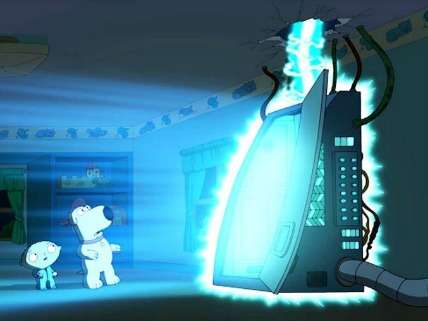Administration Officials Say It's 'Impossible' to Know Whether Obama's Warmed-Over Gun Controls Would Have Stopped the San Bernardino Massacre
No, it isn't.

Summarizing the gun control measures President Obama is officially unveiling today, The New York Times reports that "officials said it was impossible to predict whether the new directives would have made any difference in recent shootings, such as the one in San Bernardino, Calif." Barring a time machine to aid us in exploring alternative histories, I don't think predict is the right verb here. But you get the idea: Obama's underlings are modestly conceding that it's not clear whether his proposals, had they already been implemented, would have prevented the San Bernardino massacre or other recent mass shootings.
Those unnamed officials are not quite modest enough, since it actually is clear that an expanded background check requirement, a more complete database of people disqualified from owning firearms for psychiatric reasons, and better reporting of lost guns would not have stopped the attack in San Bernardino. That's because the perpetrators did not have disqualifying criminal or psychiatric records, one of them actually passed background checks, and none of the guns they used was stolen.
In fact, none of the mass shootings that have grabbed headlines in the last few years would have been prevented by the gun controls proposed in response to them, and Obama's new list of warmed-over ideas does not break any new ground in that respect. Instead of stating that point clearly, as Washington Post fact checker Glenn Kessler was honest enough to do, the Times suggests that a bunch of demonstrably ineffective measures might magically combine to achieve a result none could on its own.
Similarly, in a story last August about Virginia Gov. Terry McCauliffe's renewed push for gun control following the televised double murder in Roanoake, the Times claimed it was "unclear" whether "the measures Mr. McAuliffe advocates"—laws limiting handgun purchases to one per month and requiring background checks for private gun sales—"would have kept the Roanoke suspect, Vester Lee Flanagan, from purchasing the Glock handgun he used to kill [Alison] Parker and [Adam] Ward." It was not at all unclear, since Flanagan used just one gun, which he bought from a Virginia dealer after a background check that he passed because he did not have a disqualifying record.


Show Comments (78)